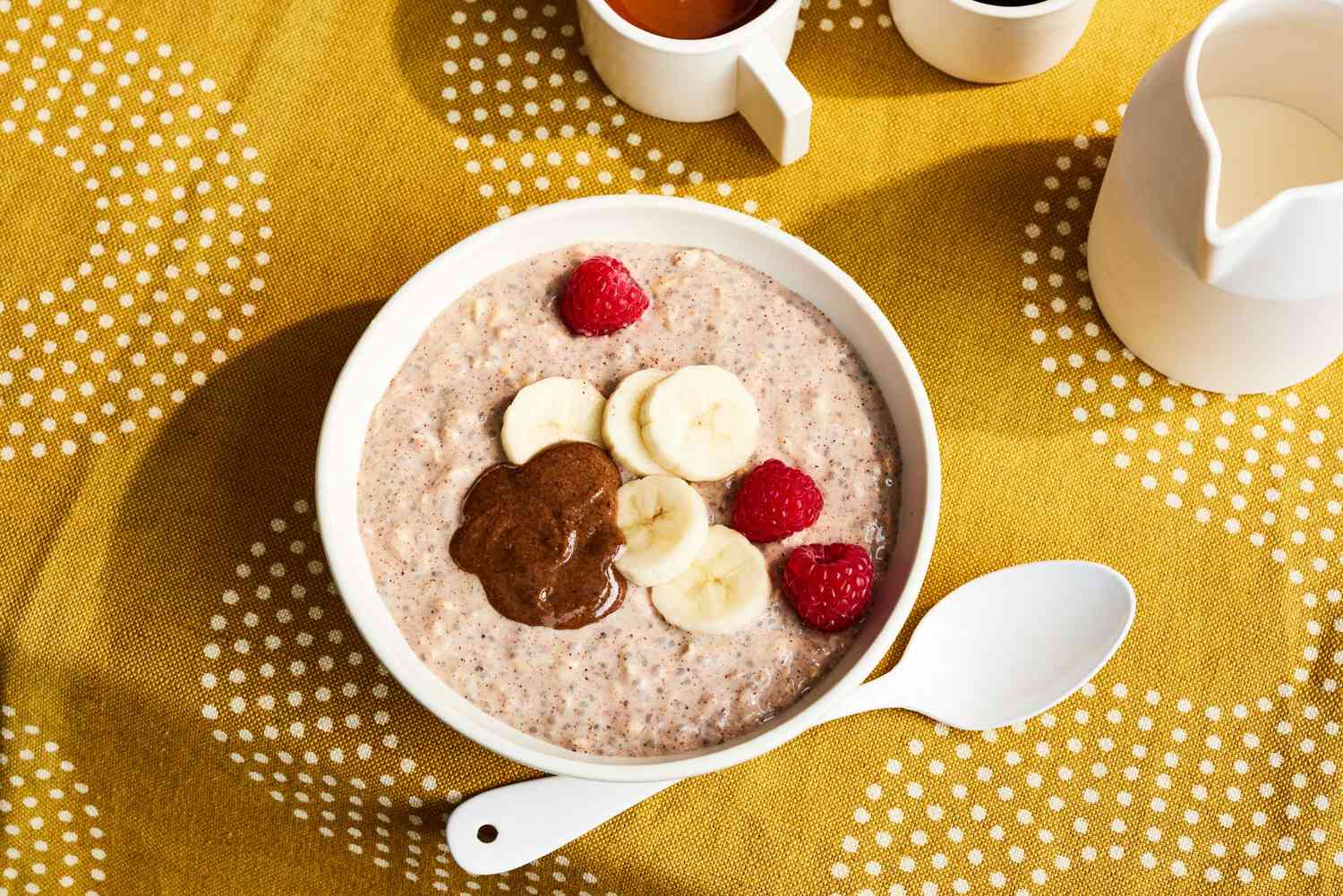Blog
The No. 1 Whole Grain to Eat for Better Heart Health, According to a Dietitian

- Whole grains support heart health with fiber, antioxidants and anti-inflammatory nutrients.
- Oats stand out for their beta-glucan fiber, which helps lower LDL cholesterol and inflammation.
- Add oats to oatmeal, smoothies and energy bites, or grind into flour for burgers and baked goods.
Whole grains are a healthy part of any diet, but they’re especially great for your ticker. With a good dose of fiber, vitamins, minerals and antioxidants, almost all whole grains are beneficial for your health. But when asked to choose the top one for cardiovascular health, nutrition experts agree on one that’s probably already in your pantry and may be a regular part of your breakfast table. Read on to find out the top whole grain for heart health, what makes it so beneficial and a few runner-up whole grains that deserve the silver and bronze medals.
Whole Grains and Heart Health
“Whole grains are a fundamental part of a heart-healthy diet because they contain all parts of the grain—the bran, germ, and endosperm–making them a nutritional powerhouse packed with antioxidants, fiber, and other key nutrients,” says Lauren Manaker M.S., RDN, LD, registered dietitian and author of The First Time Mom’s Pregnancy Cookbook. Among these many beneficial nutrients, one stands out in the fight against heart disease: fiber.
As a matter of fact, “a study found that regular whole-grain consumption may act as a line of defense against heart disease,” says Catherine Karnatz, M.P.H., RD, anti-diet culture dietitian and owner of Nutrition Education RD. Eating whole grains is also linked to reductions in inflammatory markers and LDL cholesterol levels.
Fiber is also important for a healthy gut microbiome, which decreases overall inflammation in the body and may lead to a lower risk for heart disease, hypertension and atherosclerosis, according to Rebecca Jaspan, M.P.H., RD, CEDS, CDCES, a registered dietitian in New York City. Whole grains also contain phytochemicals—plant compounds that have an anti-inflammatory effect on the body and can reduce the risk of chronic diseases like heart disease.
Oats Are No. 1
It’s so difficult to pick just one, but multiple experts agree that oats are the best whole grain for heart health. Here’s why nutritionists choose oats as their heart-healthiest whole grain.
Reduced cholesterol
“Oats are a rich source of soluble fiber beta-glucan,” says Karnatz. She explains that beta-glucan combines with water to form a gel-like substance in your GI tract. The soluble fiber then latches onto some of the LDL or “bad” cholesterol particles in your bloodstream, slows their absorption and helps you poop them out. “This process plays a big role in lowering LDL and total cholesterol levels while easing the strain on the arteries to carry blood from the heart to the rest of the body,” says Karnatz.
Less inflammation
Besides its high beta-glucan content, oats also contain heart-health anti-inflammatory compounds. One group of plant compounds, called avenanthramides, are only present in oats. Animal studies have found that avenanthramides may improve lipid profiles, including cholesterol and triglycerides, as well as reduce inflammation. More research on this topic is needed.
Affordable and versatile
“Not only are oats heart healthy, they’re also extremely affordable and versatile,” says Karnatz. And believe it or not, all varieties of oats provide the same nutritional quality to your diet. Whether you prefer steel-cut oats in oatmeal or rolled oats in an energy bite or granola, you’ll be reaping the heart health benefits. “Use whole-grain oats for savory or sweet oatmeal, make-ahead baked oatmeal or smoothies or blend into a flour as a binder for burgers or meatballs,” says Jaspan.
Runners-Up
All whole grains are beneficial for heart health, and these two come in a close second to oats.
Barley
Barley is a chewy and nutty whole grain that can be easily added to soups and salads or enjoyed as a side dish. “Like oats, barley is packed with phytonutrients and cholesterol-lowering beta-glucan soluble fiber,” says Karnatz. In fact, oats and barley are the only two grains permitted by the U.S. Food and Drug Administration (FDA) to display the claim that they may reduce the risk of coronary heart disease.
Sorghum
Sorghum is a drought-tolerant and affordable crop that you might not think of. It has the same texture as Israeli couscous but it’s nuttier and higher in nutrients. “Rich in dietary fiber and phytochemicals, this versatile grain may help reduce LDL cholesterol levels and promote overall cardiovascular health,” says Manaker. “It also provides essential nutrients like magnesium and potassium, which are key in maintaining a healthy heart rate and blood pressure, as these are nutrients emphasized on the Dietary Approaches to Stop Hypertension (DASH diet),” Manaker adds.
Top-Rated Oat Recipes to Try
Our Expert Take
Oats are an inexpensive pantry staple that has a heaping dose of the soluble fiber beta-glucan. Research shows a link between eating beta-glucan and lowering blood cholesterol levels, which is an effective way to protect your heart. Other whole grains, like barley and sorghum, also contribute to overall heart health. To keep your heart happy and healthy throughout the years, stock your pantry with nutritious whole grains.












